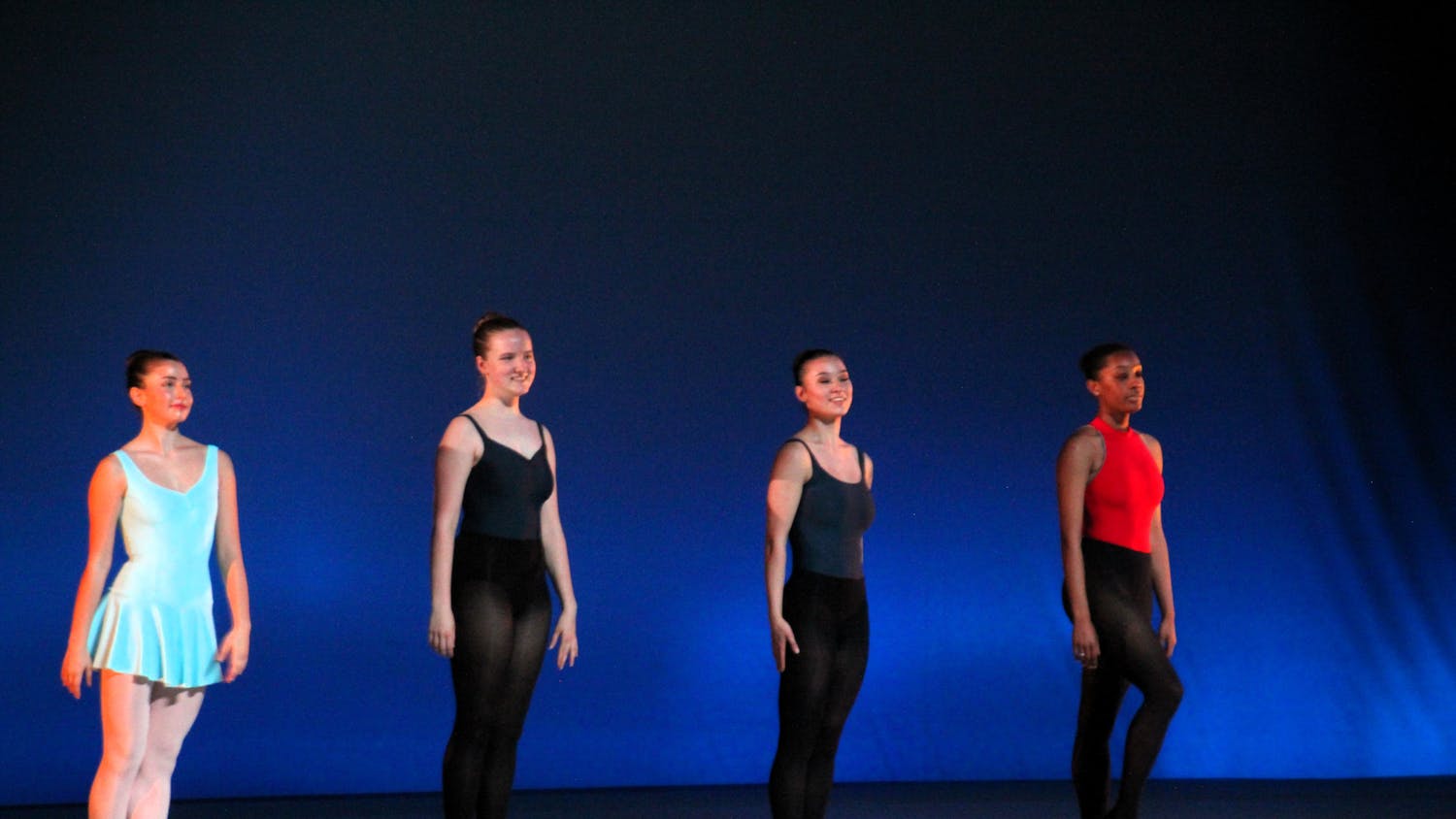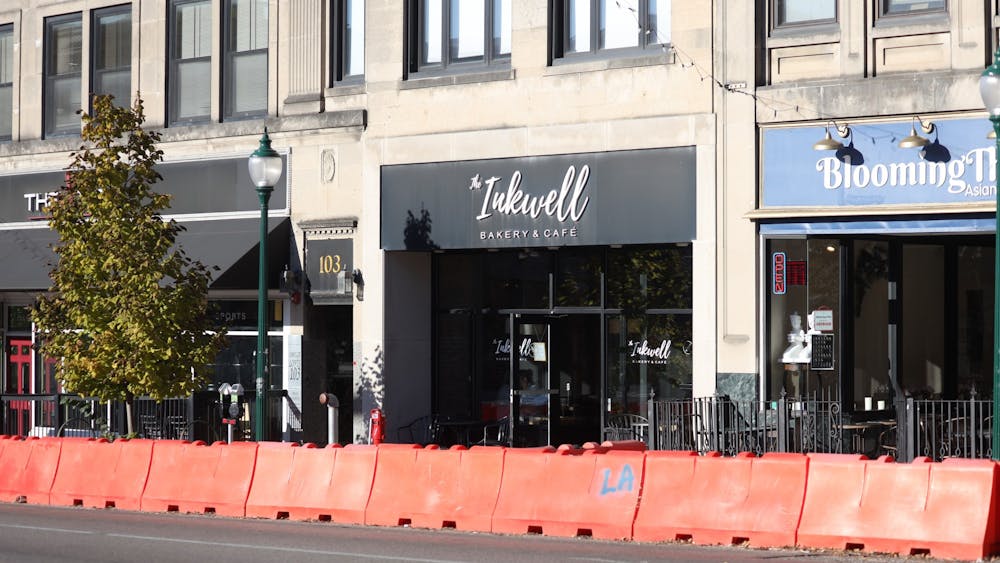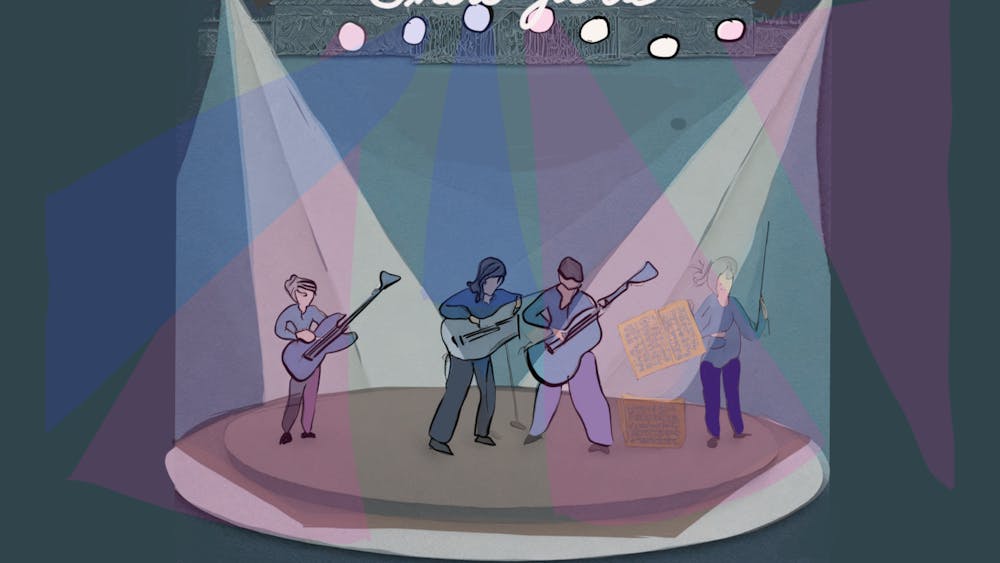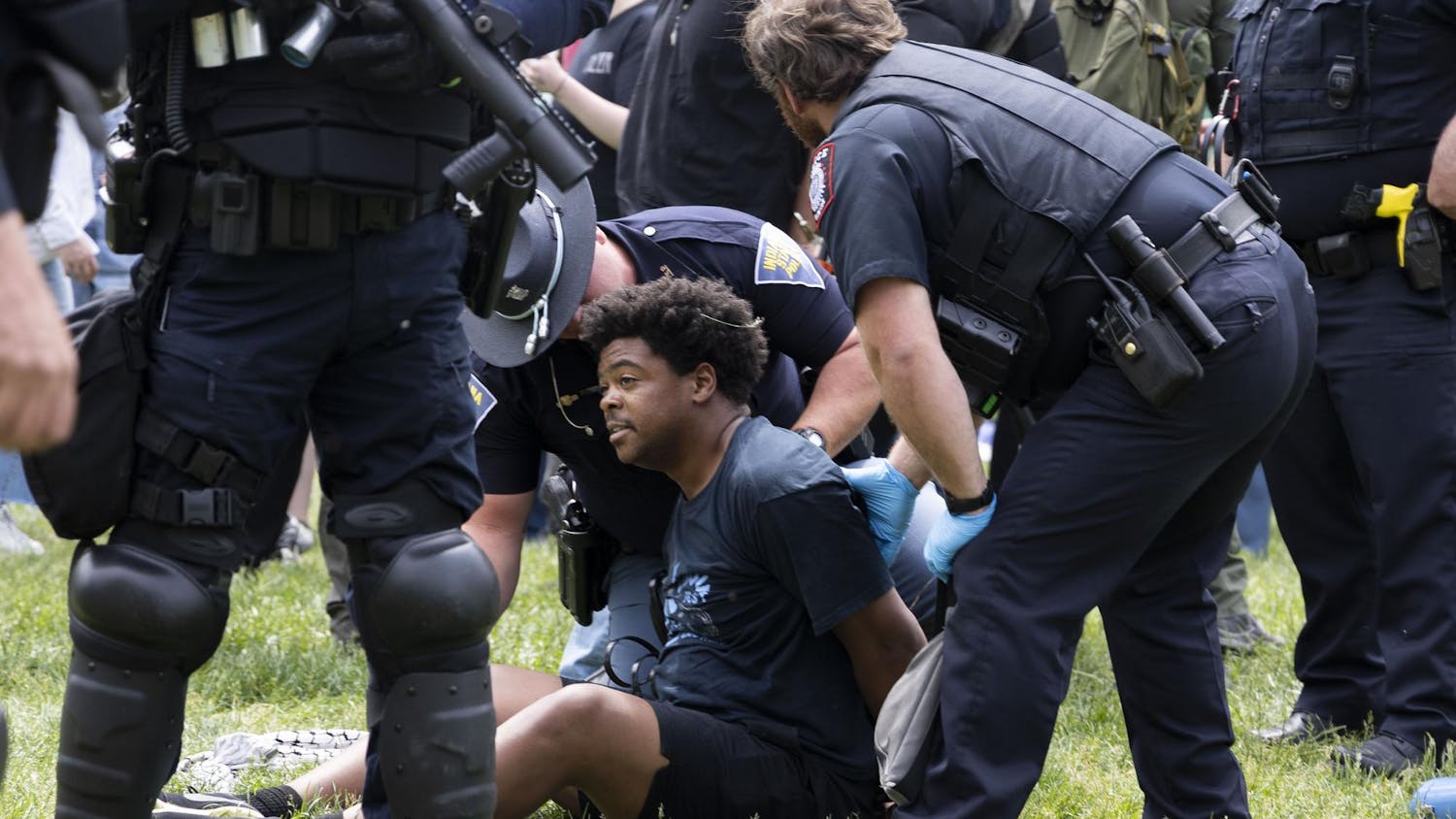At the start of Sara Paretsky's new novel, "Blacklist," private eye V.I. Warshawski recalls her feelings right after terrorists attacked the Pentagon and the World Trade Center.\n"I'd been numbed and fearful as everyone else in America," Paretsky writes. "I only had half a mind for my work ... You need to be able to concentrate in front of a computer for long hours, and concentration wasn't something I was good at."\nBut just as Warshawski gathers herself for the next case, one that links the pursuit of Communists in the McCarthy era to the pursuit of terrorists today, Paretsky and others are getting on with their work in a post-Sept. 11 world.\nTwo years later, what was sudden and unthinkable is gradually spreading and settling into history. The wave of commemorative books and tribute songs is gone, but the attacks color an increasing number of novels and films and other narratives.\nPlaywright Alexandra Gersten-Vassileros, co-author of "Omnium Gatherum," which takes place a few weeks after Sept. 11, says both the attacks and what she saw as the simplistic media coverage compelled her to write.\n"The day itself shocked me out of my typically entitled American experience and I felt much more joined to the world than I had been before," she says. "That and the polemics of the arguments that we kept watching on television, I think sort of screamed a play in our ears."\nReferences to Sept. 11 appear both in literary novels such as Pat Barker's "Double Vision," the story of two British journalists based in New York after the attacks, and in more commercial novels such as Tom Clancy's latest, "The Teeth of the Tiger," which imagines an alliance between drug and terrorist networks.\nArtists have to keep in touch not just with the times, but with time itself. A few years ago, a writer or a filmmaker telling a contemporary story didn't have to think a lot about the exact year; 1993 doesn't seem terribly different from 1995. But a plot set in 2002 has a very different meaning from one set in 2000.\n"I'm working on a book set over the past few years and when I was trying to lay out a timeline for a book last spring I did try to think of subtle ways to refer to the event without having it dominate my fictional world," says Jonathan Franzen, author of the award-winning best seller "The Corrections."\nHollywood has mostly avoided Sept. 11, with studios figuring there's nothing to gain by raising such a subject in big-budget escapist flicks. DreamWorks did recently option film rights to "The Kite Runner," a novel by Khaled Hosseini set in contemporary Afghanistan.\nA few independent productions have taken on the event. Spike Lee's "The 25th Hour," about a drug dealer's last day of freedom before prison, included scenes of the trade center cleanup. "The Guys," starring Sigourney Weaver and Anthony LaPaglia in the story of an editor and fire captain writing eulogies for rescuers killed in the trade center collapse, came out in limited release last spring.\nThe French-produced "11'09"01" _ retitled "September 11" for U.S. release _ presents 11 short films reacting to the terrorist attacks from such directors as Sean Penn, Mira Nair, Ken Loach and Claude LeLouch. Some of the shorts have drawn criticism as anti-American, but the project managed to find a U.S. distributor and is now touring art house cinemas.\n"The Barbarian Invasions," the tale of a terminally ill man reuniting with family and friends, won the screenwriting prize for Canadian director Denys Arcand at this year's Cannes Film Festival and opens at U.S. theaters in November.\nArcand uses a clip of the trade center attacks to introduce a historian's comparison of the United States to the Roman Empire as it faced encroachment by invading hordes.\nViewers at Cannes and in Quebec, where the film already has played theaters, took the Sept. 11 footage in stride, but a test audience in New York City was riled when the fiery image of the trade center appeared on screen, Arcand said.\n"This shocked them greatly. They had a strong emotional reaction. They felt this shot shouldn't be in the film," Arcand said. "They felt it was exploitive, which it's not in my case, because it's not a commercial film. In fact, that shot is probably a bad commercial strategy, but it says something important to society and the film."\nThe shot of the Sept. 11 attacks is remaining in the U.S. release, Arcand said. New York audiences will encounter more references to Sept. 11 in two off-Broadway plays opening this fall.\n"Omnium Gatherum," by Theresa Rebeck and Gersten-Vassilaros, concerns a dinner party given a few weeks after Sept. 11. Craig Wright's "Certain Tragic Events" is set in Minneapolis on Sept. 12, and concerns a blind date and whether the couple should proceed with it; the woman's sister worked in the World Trade Center and hasn't been heard from.\nMusicians seem more focused on Iraq over the past year than on Sept. 11, with such protest songs as Merle Haggard's "That's the News" and pro-war anthems such as Darryl Worley's "Have You Forgotten." But Sleater-Kinney's "One Beat" is an album of grief (and protest) from a rock band based in Washington state, thousands of miles from ground zero.\nIn "Faraway," Sleater-Kinney's Corin Tucker recalls nursing her baby when the phone rings and someone tells her to turn on the television. "And the heart is hit in a city faraway, but it feels so close," she sings. "I look to the sky and ask it not to rain on my family tonight."\nOn Sept. 7, Showtime was to air "DC 9/11," a docudrama about the attacks based on interviews with President Bush and senior advisers. Timothy Bottoms stars as Bush and Lawrence Pressman portrays Vice President Dick Cheney.\nThe producers of NBC's "Law & Order" and its two spinoffs waited a while before producing Sept. 11-related stories. In one script last year, a murderer tried to dupe authorities into believing his victims had been killed in the terrorist attacks.\nWith Hollywood in the process of mapping out stories for the season that begins this fall, Sept. 11 hasn't come up yet, said Peter Jankowski, executive producer for the three series.\n"It hasn't really factored in to any of our storytelling this year, which is not to say we're not aware of it," Jankowski said. "Obviously, we shoot in the shadow of what was the World Trade Center."\nThe two-part series finale of CBS' "Without a Trace" in May involved a kidnapping committed by a World Trade Center widower bitter about the compensation for his wife's death.\nIt's hard not to touch upon the impact of Sept. 11 in dramas because so much has changed, such as the routinely long lines and thorough security checks at airports, said Jonathan Littman, the executive producer for Jerry Bruckheimer Television, which makes "Without a Trace" and the "CSI" series.\n"There's no question it's a fabric of our life now," he said. "There's not a single person in America who hasn't been affected by it"
Two years later, artists learn to work in a post-Sept. 11 world
Get stories like this in your inbox
Subscribe





